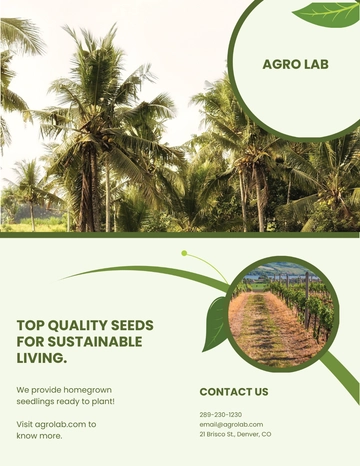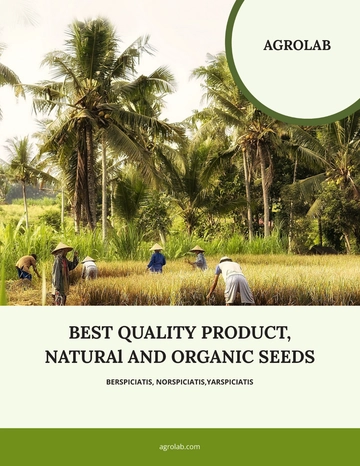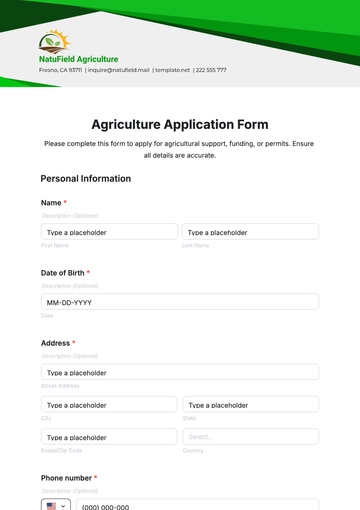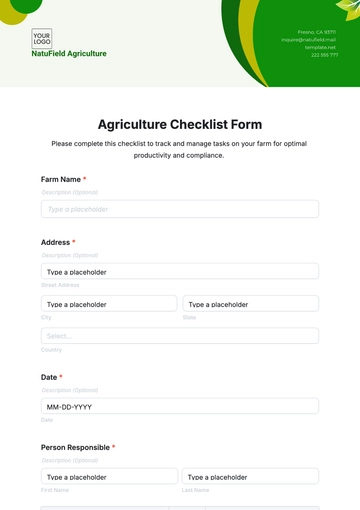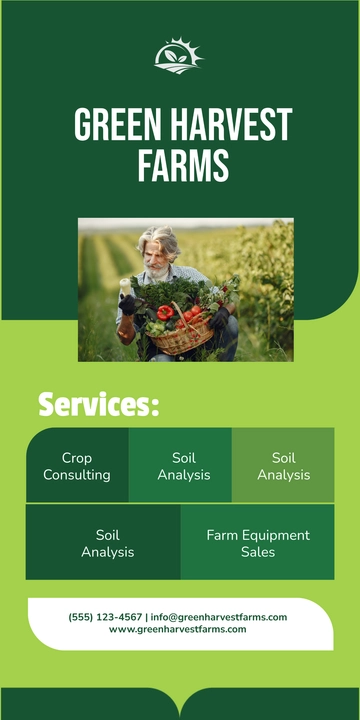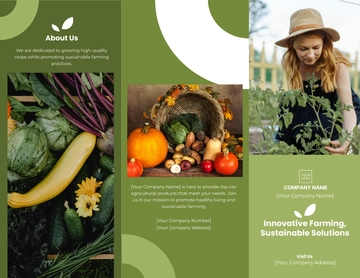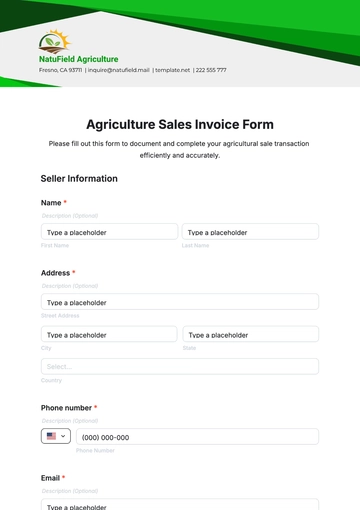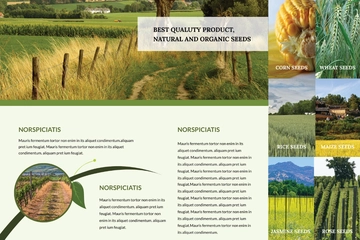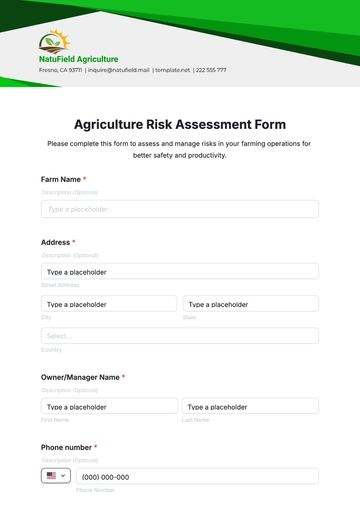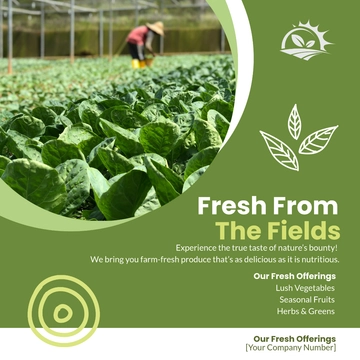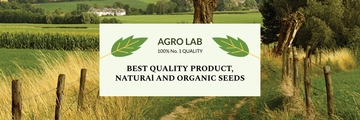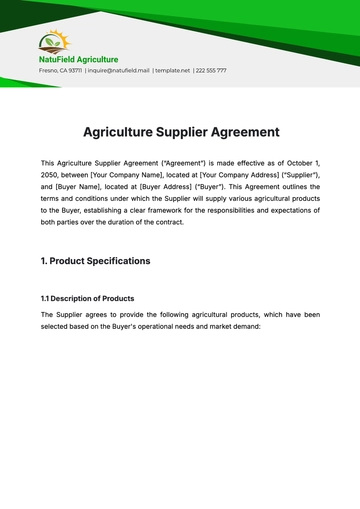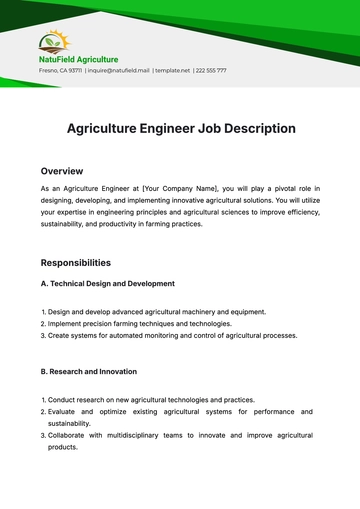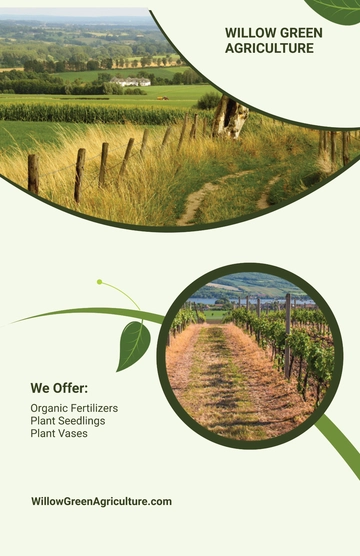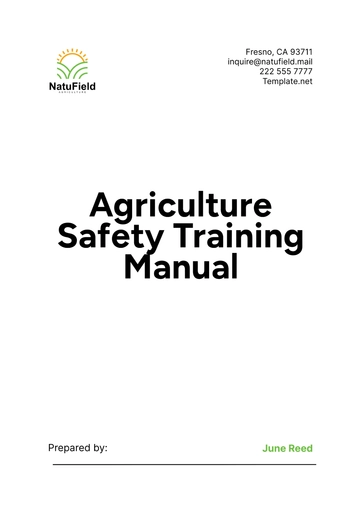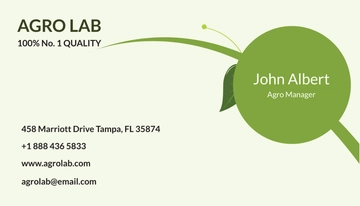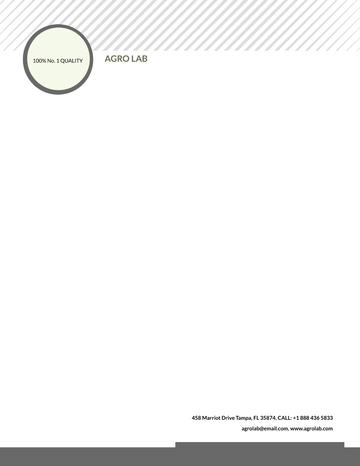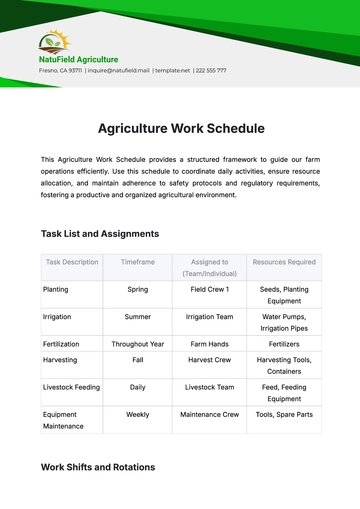Free Agriculture Supply Feasibility Study
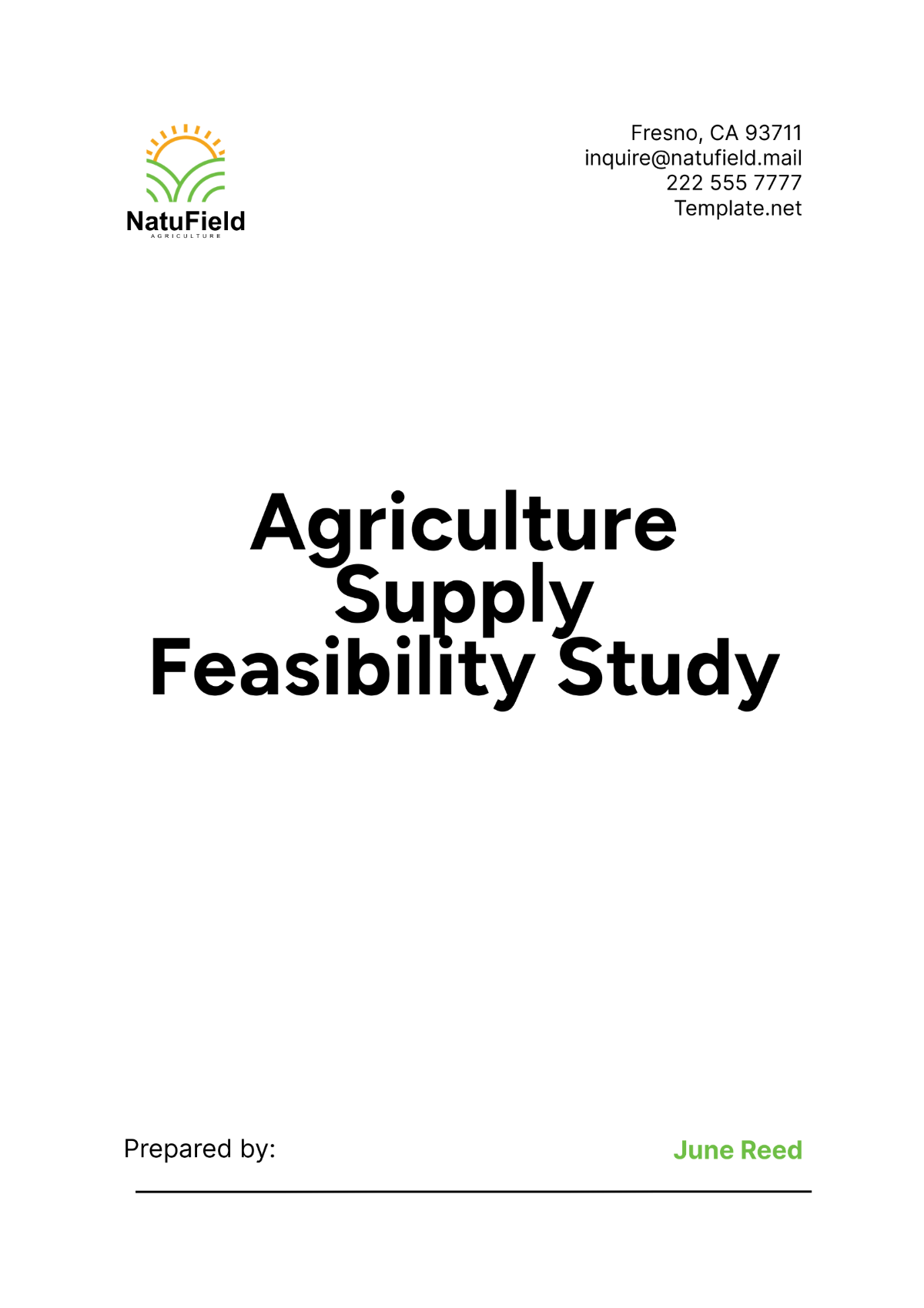
I. Executive Summary
This feasibility study evaluates the viability of establishing an Agriculture Supply business under the banner of [Your Company Name]. Our primary objective is to determine the sustainability of this project by thoroughly assessing key factors such as market demand, financial requirements, legal considerations, operational feasibility, and associated risks. Through an in-depth analysis, we aim to provide actionable insights and recommendations that will guide the successful launch and operation of this business.
The study begins with a detailed market analysis to understand the demand for agricultural supplies, identifying target customer segments and potential competitors. Financial assessments will outline the initial investment required, projected revenue streams, and profitability over time. Legal considerations will ensure compliance with all relevant regulations, while operational feasibility will examine the logistics, supply chain management, and human resource needs. Lastly, risk assessment will identify potential challenges and propose mitigation strategies. By addressing these critical areas, [Your Company Name] aims to establish a robust and sustainable Agriculture Supply business that meets the needs of farmers and contributes to the growth of the agricultural sector.
II. Project Description
This section presents a detailed overview of our Agriculture Supply business concept. Our goal is to create a comprehensive supply chain solution that not only meets the diverse needs of farmers but also upholds high standards of sustainability and service. We aim to establish a robust infrastructure, offer a diverse range of products, and provide exceptional customer support to drive agricultural success.
Establish a Supply Chain
We will develop an efficient supply chain that bridges the gap between suppliers and farmers, ensuring timely and cost-effective delivery of agricultural products. This will involve building strong partnerships with suppliers, optimizing logistics and distribution processes, and leveraging technology for seamless operations.
Product Variety
Our product lineup will include a broad selection of agricultural supplies such as high-quality seeds, effective fertilizers, advanced equipment, and essential tools. We will offer products from reputable brands to meet the varying needs of farmers, ranging from small-scale operations to large farms.
Sustainability
We are committed to promoting environmentally-friendly agricultural practices through the selection of eco-friendly products and the implementation of sustainable business practices. Our approach will include offering organic fertilizers, water-efficient irrigation solutions, and advocating for practices that reduce environmental impact.
Customer Service
Exceptional customer service will be at the heart of our business. We will provide expert advice, personalized support, and educational resources to help farmers make informed decisions. Our customer service team will be trained to address a wide range of agricultural challenges and offer solutions that enhance farm productivity and sustainability.
III. Market Analysis
Understanding the market landscape is crucial for the success of [Your Company Name]'s Agriculture Supply business. Our analysis focuses on evaluating market demand, identifying key customer segments, analyzing competitor strategies, and understanding market trends. The insights gathered will help in making informed decisions and developing effective marketing strategies. The following table presents a comprehensive summary of our market analysis, highlighting key metrics and findings that will guide our business planning and execution.
Metric | Description | Findings |
|---|---|---|
Market Demand | Current and projected demand for agricultural supplies | Steady increase in demand due to growing agricultural activities and adoption of modern farming techniques |
Customer Segments | Key target groups for agricultural supplies | Small-scale farmers, large agricultural enterprises, cooperatives, and agricultural service providers |
Competitor Analysis | Evaluation of main competitors and their market strategies | Key competitors include established agricultural supply companies, local suppliers, and online platforms; strategies include competitive pricing, diverse product range |
Market Trends | Emerging trends and their impact on the market | Increased focus on sustainable and eco-friendly products, technological advancements in farming equipment, and a shift towards online purchasing channels |
Market Growth Rate | Annual growth rate of the agricultural supply market | The market is expected to grow at a CAGR of 5% over the next five years, driven by technological advancements and increased awareness of sustainable farming practices |
IV. Financial Feasibility
Evaluating the financial feasibility is essential for understanding the economic viability of [Your Company Name]'s Agriculture Supply business. This section presents a detailed analysis of the initial and ongoing financial requirements, highlighting the key cost components. The accompanying line graph visually represents these expenses, providing a clear picture of the financial landscape. This analysis will guide budget planning and ensure that all financial aspects are thoroughly considered for sustainable business operations.
The graph highlights four main expense categories: Initial Setup, Monthly Operations, Marketing, and Contingency.
The Initial Setup cost is the highest at $50,000, covering expenses for infrastructure, equipment, and initial inventory. Monthly Operations, depicted at $10,000, include recurring costs such as salaries, utilities, and maintenance. Marketing expenses are set at $5,000, reflecting investments in promoting the business. Lastly, a Contingency fund of $5,000 is allocated for unforeseen expenses, ensuring financial stability.
V. Legal Considerations
Navigating the legal landscape is crucial for the successful establishment and operation of [Your Company Name]'s Agriculture Supply business. Understanding and adhering to the relevant laws and regulations not only ensures compliance but also protects the business from potential legal challenges. This section outlines the key legal considerations that must be addressed to operate legally and ethically within the agricultural sector.
The following points highlight the essential legal requirements and considerations. These include obtaining the necessary business registrations and licenses, adhering to agricultural and environmental regulations, protecting intellectual property rights, complying with employment and labor laws, and ensuring health and safety standards are met. Each of these aspects plays a vital role in the legal and operational integrity of the business.
Business registration and licensing
Compliance with agricultural and environmental regulations
Intellectual property rights for proprietary products
Employment and labor laws
Health and safety regulations
VI. Operational Feasibility
Evaluating the operational feasibility of [Your Company Name]'s Agriculture Supply business involves assessing the practical aspects of running the business efficiently and effectively. Key operational factors such as logistics, supply chain management, human resources, and technology implementation are critical to ensuring smooth operations. The following table summarizes these essential components, providing a clear framework for understanding the operational requirements and strategies necessary for the successful management of the business.
Operational Aspect | Description | Strategy |
|---|---|---|
Logistics | Management of transportation and distribution of agricultural supplies | Develop efficient routing plans, partner with reliable logistics providers, and implement tracking systems |
Supply Chain Management | Coordination between suppliers, inventory management, and order fulfillment | Establish strong supplier relationships, utilize inventory management software, and streamline ordering |
Human Resources | Recruitment, training, and management of staff | Implement comprehensive training programs, offer competitive salaries, and foster a positive work culture |
Technology Implementation | Use of technology to enhance operational efficiency | Invest in modern ERP systems, automate key processes, and leverage data analytics for decision-making |
Customer Support | Providing assistance and support to farmers | Set up a dedicated support team, offer multi-channel support options, and create an extensive knowledge base |
Quality Control | Ensuring the quality and safety of agricultural supplies | Implement rigorous quality assurance processes, conduct regular inspections, and adhere to industry standards |
VII. Risks
Identifying and understanding potential risks is vital for the resilience and sustainability of [Your Company Name]'s Agriculture Supply business. A comprehensive risk assessment helps in anticipating challenges and developing strategies to mitigate their impact. By proactively addressing these risks, the business can navigate uncertainties and maintain stable operations.
The following list outlines key risks that could affect the business. Recognizing these risks enables the formulation of contingency plans to safeguard the business.
Market entry of stronger competitors
Fluctuations in agricultural product demand
Operational inefficiencies
Regulatory changes impacting operations
Supply chain disruptions
VIII. Recommendations
To ensure the successful launch and sustainable growth of [Your Company Name]'s Agriculture Supply business, the following recommendations are provided. These strategies are based on comprehensive analysis and are designed to address critical aspects such as location, supplier relationships, product offerings, marketing, financial planning, and risk management. Implementing these recommendations will help establish a strong market presence and effectively meet the evolving needs of the agricultural sector.
Select a strategic location with easy access to major agricultural areas and efficient transportation networks.
Build strong connections with reputable suppliers to secure a reliable flow of high-quality agricultural supplies.
Focus on offering sustainable and innovative products to cater to the growing demand for eco-friendly farming practices.
Develop a dedicated marketing strategy emphasizing product benefits, expert advice, and exceptional customer service.
Leverage digital marketing channels and participate in agricultural trade shows to enhance visibility and reach.
Ensure robust financial planning by maintaining a detailed budget, securing adequate funding, and regularly reviewing financial performance.
Implement proactive risk management strategies, such as diversifying the supplier base and staying updated on regulatory changes, to mitigate potential challenges.
[Your Company Name]'s Agriculture Supply business presents a viable opportunity for success in the agricultural sector. By following the recommended strategies and addressing potential risks, the business is well-positioned to meet market demands and achieve long-term growth and sustainability.
- 100% Customizable, free editor
- Access 1 Million+ Templates, photo’s & graphics
- Download or share as a template
- Click and replace photos, graphics, text, backgrounds
- Resize, crop, AI write & more
- Access advanced editor
Evaluate your agricultural projects effectively with the Agriculture Supply Feasibility Study Template from Template.net. This fully customizable and editable template is perfect for assessing supply viability. Easily editable in our Ai Editor Tool, it allows you to tailor each section to your specific requirements, ensuring comprehensive and professional analysis.
